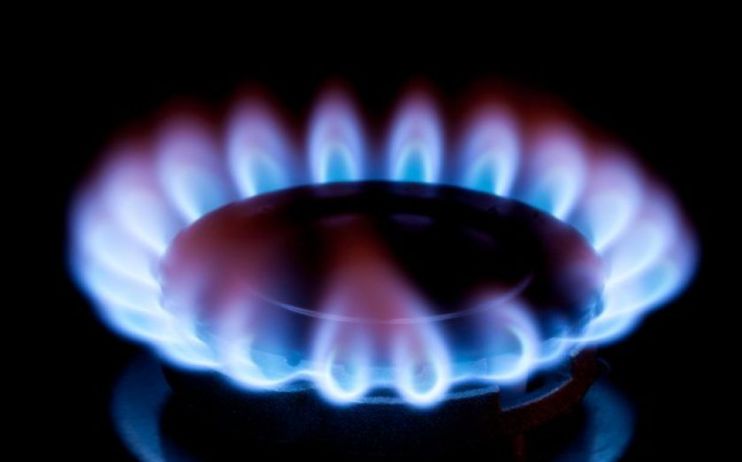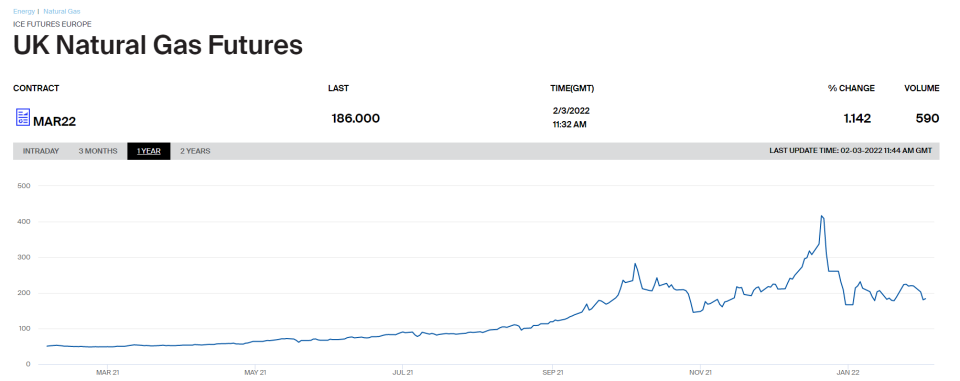Household energy bills to rise 54 per cent to nearly £2,000 per year

Average household energy bills have been hiked by a record £693 to an eye-watering £1,971 per year, after market regulator Ofgem announced its latest gloomy update to the consumer price cap.
The massive hike means that millions of energy users will be subjected to a 54 per cent increase in their annual energy bills from April.
Ofgem has also increased the pre-payment meters cap, which is typically used by more financially vulnerable customers.
It now been set at a whopping £2,017 per year.
Ofgem’s chief executive Jonathan Brearley previously warned the price cap would need to increase to reflect soaring wholesale costs.
Gas prices increased five-fold over the course of last year, and while they have dipped since then they remain historically high.
Commenting on today’s announced price rise, he said: “We know this rise will be extremely worrying for many people, especially those who are struggling to make ends meet, and Ofgem will ensure energy companies support their customers in any way they can.

The rising costs combined with the price cap, has resulted in dozens of suppliers exiting the domestic market, directly affecting over four million customers.
This has included Bulb Energy, the UK’s seventh biggest supplier, falling into de-facto nationalisation, being propped up by £1.7bn in public funds over winter.
It has been left in the hands of administrators, with no sign that the fallen firm’s future will be resolved any time soon.
Industry response: Painful price hike was expected
Dr Craig Lowrey, senior consultant at Cornwall Insight said it was “unfortunately inevitable” that the default tariff cap would rise amid volatile gas and electricity markets.
Justina Miltienyte, energy policy expert at Uswitch.com argued the price hike reflects the “severity of the energy crisis” which is now “becoming a reality for 22 million households”.
Both experts argued government measures such as a rebate scheme and council tax discounts, announced this afternoon by Chancellor Rishi Sunak, would not work provide sustainable resolutions current crisis.
Militienyte said: “The government will try to soften the impact of this rise, there’s no getting away from the fact that this is going to have damaging consequences for households. The expected measures will only be sticking plasters on a long term problem, and it’s consumers who will ultimately be paying the price.”
Lowrey also argued proposed measures would only make a temporary dent prices, and not reflect a “viable long-term solution” to the crisis, while also slamming the price cap.
He explained: “The cap was never meant to be a permanent solution and today has shown that rather than protecting customers, the impact in the wholesale market over the last 12 months was simply deferred, leading to this significant increase announced today.”
The energy specialists are not alone in their criticisms of the price cap, with ScottishPower CEO Keith Anderson and John Penrose MP – who first proposed the cap in parliament – both calling for it to be reformed in recent months.
Cornwall Insight recently called for mass reforms to the energy security to ensure security of supplies and market resilience was prioritised above any other factor. It has suggested potential solutions to minimise future problems such as boosting the UK’s long-term energy storage facilities, while investment in energy efficient housing and electric vehicles could reduce the level of demand on power plant capacity.
So far, the market regulator and the government have rejected calls to scrap or reform the cap, and consider it a key measure to protect households from market shocks.
Bill Bullen, founder and chief executive of Utilita Energy, told City A.M. today announcement will “instil fear amongst millions more households”, who were able to afford the energy they needed as recently as six months ago.
He argued the government has underinvested in smart technology and failed to encourage more efficient energy use.
The energy boss said: “Despite the rising price of wholesale energy, a spike of this magnitude could still have been avoided had the regulator not made grave errors, despite suppliers’ warnings.”
Andy Mayer, energy analyst at free market think tank the Institute of Economic Affairs, suggested the cap increases reflect net zero dogma, with Sunak refusing to scrap environmental levies.
He explained: “The 54 per cent rise in the domestic energy price cap from April is a result of net zero dogma – prioritising decarbonisation at any price, including undermining future investment in the most affordable source of heat and power, domestic gas.”
There are growing fears the high energy prices could be baked into the market, with the boss of trade body Energy UK Emma Pinchbeck warning of a second hike in October.
Following the announced rise in the price cap, Chancellor Rishi Sunak has announced a £350 rebate the take the “sting” out of energy bills.
He said 80 per cent of all homes in England will get a £150 discount on their council tax bill in April, while all domestic electricity customers will get £200 in October off their energy bills.
The latter amount will be repaid over five years, starting from next April, although the council tax rebate never need to be paid back.